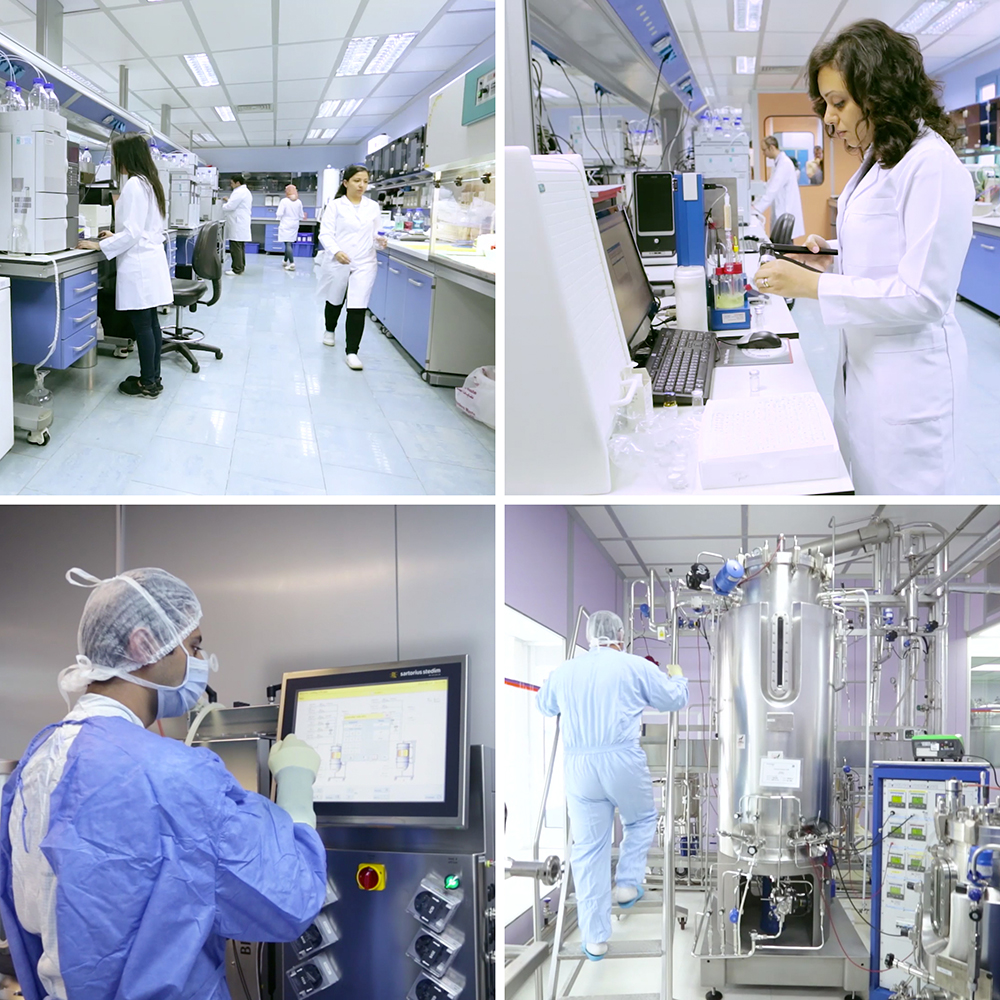Launched in the late 1950s, Minapharm was Egypt’s first privately owned pharmaceutical factory. Now, thanks to the company’s development of sophisticated biotechnology platforms – so far the one and only player in the Middle East and Africa – and its choice of strategic collaborations with Germany’s pharmaceutical sector, Minapharm is exceptionally well placed to take advantage of an exponential increase in opportunities in the Egyptian and other developing markets.
The rollout of a comprehensive national health insurance system over the next decade and the establishment of a new Egyptian Drug Authority (EDA) will introduce new treatments into Egypt while boosting pharmaceutical exports.
According to a 2019 report by Fitch Solutions, Egypt’s pharmaceutical market sales will rise to $2.9 billion by 2023 from $2.1 billion in 2018, representing a compound annual growth rate of 8.21%.
Describing Minapharm’s journey to its cutting-edge present, CEO and Chairman Wafik Bardissi identifies the forming of tie-ups with German firms as crucial milestones. Minapharm entered a joint venture with Rhein-Biotech (now Dynavax Europe) as early as 1990s, before the 2010 acquisition of ProBioGen AG, a Berlin-based cellular engineering biotech expert.

“Our ability to create a hybrid German-Egyptian culture allowed synergistic projects to constantly drive technology transfer between Cairo and Berlin,” says Bardissi, noting that as a result, several immunotherapies are in the development pipeline.
“German technology contributed to a paradigm shift for emerging countries; we no longer acquire know-how – we own it,” Bardissi declares.
That know-how has led to great successes for Minapharm and huge benefits for local healthcare in Egypt. As an example, Bardissi highlights the launch of the first Egyptian PEGylated Interferon in 2005, “which helped Egypt’s program to wipe out hepatitis C from its population at an unprecedented pace.”
The structure created between Minapharm and its two subsidiaries for the biotech platform allows the Egyptian company to own the full value chain, starting from the gene all the way to the finished product, including clinical developments.
“Supported by this strong business model, our mission directly enables commercialization of innovative complex bioengineered products, manufactured using the latest technologies in an affordable way for this economically challenged market. In one case we succeeded in launching a product that led to a six-fold price reduction of competing imported products,” Bardissi explains.

Minapharm continues to venture into the future of biotech by investing in new state-of-the-art facilities in Egypt and Berlin, opening the door for further synergy projects to develop innovative yet affordable and advanced next-generation therapies to Egypt and the emerging countries.
Indeed, Bardissi believes that Egypt presents “a unique investment opportunity for foreign direct investments across many sectors, including pharmaceuticals” due to population of 100 million and rising, as well as its historical role as a production hub for the Middle East, Europe, and Africa with lower production costs and favorable intellectual and logistical positioning, as well as beneficial trade agreements.
“We stand out as a perfect example of how Egypt and Germany can cooperate for high level cost innovation, where multiple co-development projects have been accomplished successfully.” Minapharm’s CEO concludes.